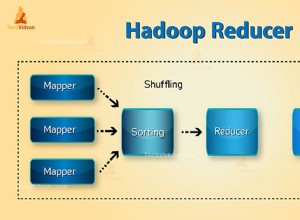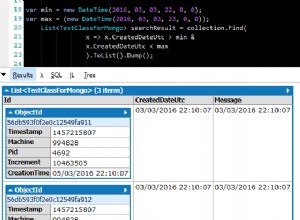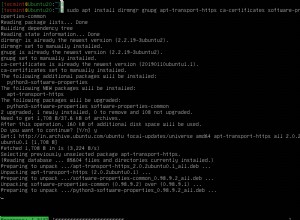Spiegherò come vengono gestiti i vari campi con un esempio. Il seguente Game.java La classe POJO rappresenta la mappatura dell'oggetto nel game documento di raccolta.
public class Game {
String name;
List<Actions> actions;
public Game(String name, List<Actions> actions) {
this.name = name;
this.actions = actions;
}
public String getName() {
return name;
}
public List<Actions> getActions() {
return actions;
}
// other get/set methods, override, etc..
public static class Actions {
Integer id;
String type;
public Actions() {
}
public Actions(Integer id) {
this.id = id;
}
public Actions(Integer id, String type) {
this.id = id;
this.type = type;
}
public Integer getId() {
return id;
}
public String getType() {
return type;
}
// other methods
}
}
Per le Actions classe è necessario fornire ai costruttori le possibili combinazioni. Usa il costruttore appropriato con id , type , ecc. Ad esempio, crea un Game oggetto e salvarlo nel database:
Game.Actions actions= new Game.Actions(new Integer(1000));
Game g1 = new Game("G-1", Arrays.asList(actions));
repo.save(g1);
Questo è memorizzato nella raccolta del database game come segue (interrogato da mongo guscio):
{
"_id" : ObjectId("5eeafe2043f875621d1e447b"),
"name" : "G-1",
"actions" : [
{
"_id" : 1000
}
],
"_class" : "com.example.demo.Game"
}
Nota le actions Vettore. Poiché avevamo memorizzato solo l'id campo nel Game.Actions oggetto, solo quel campo viene memorizzato. Anche se specifichi tutti i campi della classe, vengono mantenuti solo quelli forniti con valori.
Questi sono altri due documenti con Game.Actions creato con type solo e id + type utilizzando i costruttori appropriati:
{
"_id" : ObjectId("5eeb02fe5b86147de7dd7484"),
"name" : "G-9",
"actions" : [
{
"type" : "type-x"
}
],
"_class" : "com.example.demo.Game"
}
{
"_id" : ObjectId("5eeb034d70a4b6360d5398cc"),
"name" : "G-11",
"actions" : [
{
"_id" : 2,
"type" : "type-y"
}
],
"_class" : "com.example.demo.Game"
}




